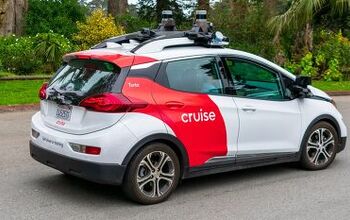2 Views
Because Polars Bears Are Cuter Than Market Failure…
by
Edward Niedermeyer
(IC: employee)
Published: September 9th, 2010
Share
To hype its forthcoming Leaf electric car, Nissan has reached for the most manipulative imagery in the green marketing playbook: the Polar Bear. They’re cute, they’re cuddly, and because their icy habitat is being destroyed by regular cars, they will hug you if you buy an EV. Meanwhile, the causes, trajectory, and impacts of global climate change (not to mention its possible solutions) remain extremely abstract and far-away when compared to the political and economic ramifications of global oil undersupply. Too bad market failures and geopolitical instability aren’t as emotionally manipulative as those fuzzy bear guys…
Edward Niedermeyer
More by Edward Niedermeyer
Published September 9th, 2010 5:43 PM

































Comments
Join the conversation
Wow...some of those scene look an awful lot like downtown Ottawa.
I always knew that liberals were quite infantile and regressed. The folks at Nissan understand too, recognizing that these types see the arctic bear as they would a teddy bear--something to hug at night after they become frightened, waking from dreams of a crazed Dick Cheney chasing them down the street with a shotgun. In my book, and if I were making ads, the bear would have eaten the liberal. But I'm a reality kind of guy.
The Truth About Marketing? Okay, then. Here goes. For the target audience this ad is aimed at, it's solid work. Pushes all the right buttons. Environmentalists, eco-awares, Wholefooders, and the carbon-impact-sensitives are posting this to their Facebook statuses faster than TTAC petrolheads can hate on the commercial here in our little corner of the interweb. The on-the-fence crowd -- not quite sure what to make of the electrification of the automobile -- will also be struck by this spot. It's simple. It's clear. It does not go into technicalities or even address things like "range anxiety." It simply makes people aware that such a thing exists, here and now, and that in and of itself will generate interest and brand goodwill, adoption notwithstanding. And the use of topical and resonent imagery presents this awareness as not only a good thing, but an important one. What auto enthusiasts must remember (whether hobbyists or professionals working in the industry) is the average consumer knows far less than you might think about cars, like how they work, how a vehicle comes to be, what they're designed to do, and even, where they come from. So yes, the commercial leaves a lot -- like everything -- of substance out. It doesn't do the math to make the purchase logical (as in, how a Leaf, over the course of X number of years, will be a more economically or environmentally sound purchase than a typical compact ICE car). It doesn't explain how Leaf works. How long it takes to charge. Or how far it'll go. It doesn't touch on how many charging cycles the batteries will endure. Or if an electric car -- based on competing theories of Peak Oil and Corporate Energy oil price manipulation -- is even a necessary thing. Because these things, to a non-petrolhead, do not really exist. These drivers spend so little time thinking about the details behind the automobile business, that issues that TTAC readers consider the very basics of the industry are obscure and useless facts to the non-Inside Baseball crowd. They simply don't care. And when we start banging on about all the issues involved in the case of the Leaf, their eyes glaze over and they look at us like we're Cliff Claven. So, in conclusion to this Truth About Marketing rant, this is a solid piece of work from Chiat.
"Nissan's Strangely Moving Leaf Ad That May Make You Vomit" Rarely do I make it over to the Huffington Post. But I did today. And that is the headline for their story about Nissan's polar bear ad. What a great headline! (Okay, I'm kidding. Their real headline suggests that the ad may make you cry. Not vomit. But they really meant vomit, I'm sure.)